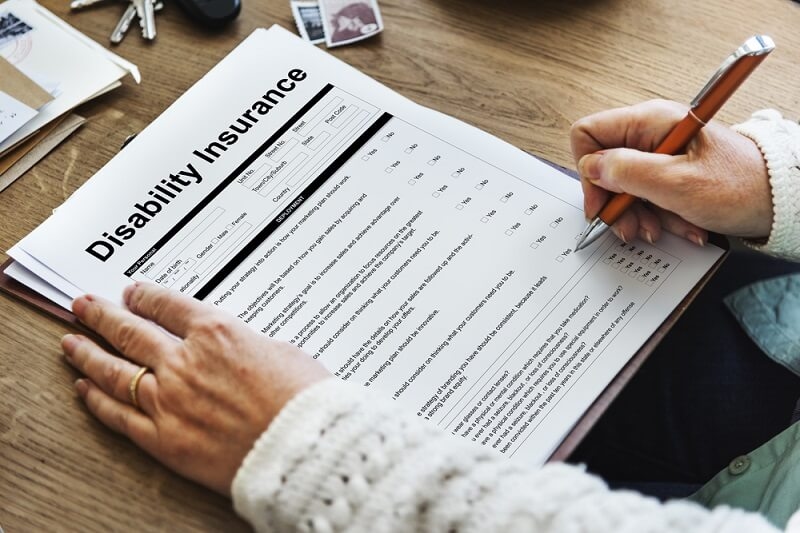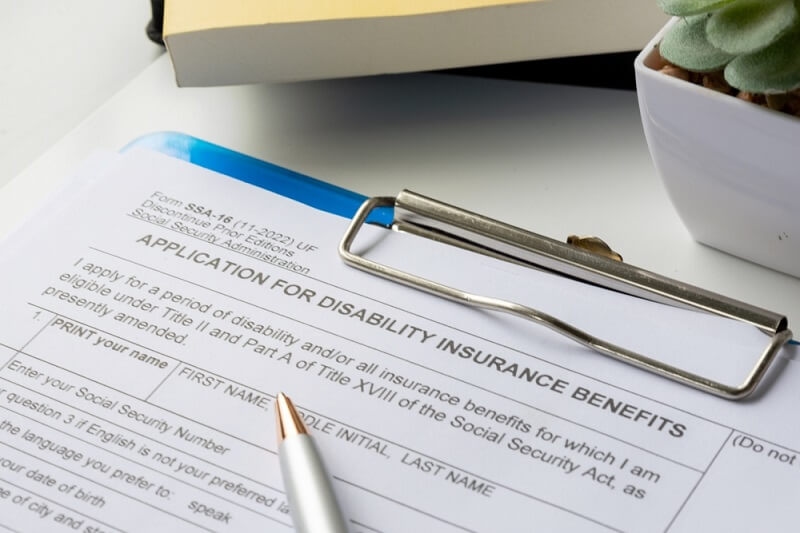
Living a life where something catches you off guard, the capacity to make an income may be in jeopardy. One of the most significant insurances you can take is disability insurance, which provides a guarantee of your salary in case of illness or injury. It will help you get out of financial stress and have peace of mind knowing how it works and what options are available.
Disability insurance is meant to cover the portion of the income that you will not be able to work because of an illness or an injury. This kind of coverage is one that many people do not take time to research until it is too late, but learning this at an early stage can make a difference in terms of financial security.
Life can be unpredictable. Sudden illness, accidents or injury may see you out of work for weeks, months or even years. Lack of disability insurance means that you have to look to savings, family, or loans to finance your daily needs.
In case you make a claim, the insurance company assesses your case according to the medical records and your work capacity. Benefits tend to take the place of a percentage of your earnings, which is usually 50 per cent to 70 per cent. Depending on the policy, payments may take a matter of several months or many years.
There are various forms of disability coverage, which is why it is important to be aware of the type of disability coverage that fits your needs. Both types have their advantages and disadvantages.
Short-term disability covers the substitution of income for a few weeks all the way through to one year. They are suitable in case of temporary sickness or minor injuries. On the contrary, long-term disability plans may span up to a few years or till retirement age and therefore are necessary in severe illnesses or permanent disabilities. A good number of employees enjoy the two kinds of coverage to be fully covered.
Some people purchase individual disability insurance directly from an insurance company. These plans are flexible and tailored to your needs, but can be more expensive. Employer disability plans, on the other hand, are often more affordable and sometimes even partially funded by your employer. However, they may offer limited coverage and specific rules about eligibility and benefits.
If your employer offers disability coverage, understanding the details is crucial. These plans often form the first line of defence in protecting your income.
Employer disability plans often cover short-term and sometimes long-term needs. They may provide a percentage of your salary for a set period. Some plans automatically cover you, while others may require enrollment during certain periods. It’s important to read your plan carefully to know what is included and what limitations exist.
Eligibility rules vary by employer. Some plans require you to work a minimum number of hours, while others may have waiting periods before benefits begin. Certain pre-existing conditions might be excluded. Understanding these rules ensures that you don’t face surprises if you ever need to file a claim.
Selecting the right policy requires careful thought and consideration of your financial needs, job situation, and health risks.
Start by calculating your monthly expenses and the income you would need if you couldn’t work. Consider housing, bills, groceries, healthcare, and other essentials. A good disability policy should replace enough income to maintain your lifestyle and cover all necessary expenses.
Not all policies are the same. Look at benefit percentages, duration of payments, and exclusions. Some plans may only pay for specific types of illnesses or injuries, while others are more comprehensive. Compare multiple options to find the coverage that best suits your needs.
Disability policies have waiting periods, also called elimination periods, before benefits begin. Shorter waiting periods may provide quicker relief but could increase premiums. Similarly, the length of benefit periods can vary from months to decades. Balancing these factors will help you choose a plan that works best for your situation.
Disability insurance isn’t just about protecting your paycheck. It’s about safeguarding your financial future and peace of mind.
Many workers find it helpful to combine employer coverage with an individual policy. Employer plans might cover a portion of your income, while a private policy fills in the gaps. This approach ensures that you are fully protected without depending solely on one source of benefits.
Life changes such as marriage, children, or career advancements may affect your insurance needs. Regularly reviewing your coverage ensures it keeps up with your lifestyle and income.
When choosing a policy, do not be afraid of asking questions. Make it clear what conditions are included, what will happen in case of changing the job, and what the taxation of benefits is. Getting to know everything also makes an informed decision and prevents negative surprises in the future.
Numerous individuals do not take disability insurance because of the myths or misconceptions. Facts may also assist you in better decision-making.
There is an opinion that only hazardous workplaces require disability insurance. Anyone in reality can find themselves out of work because of sickness or an accident. There are policies offered to office workers, medical professionals and numerous others.
There are workers who believe that disability insurance is not affordable. Although the premiums will differ according to age, health, and type of policy, the most basic coverage may still fit the budget of most people. The money and relaxation it offers tend to supersede the price of the premiums.

The best thing to do with your coverage is to make the best out of it and to plan beforehand.
Disability insurance is an important safety net for each worker. Maybe, knowing the benefits of disability work, discovering the types of disability coverage, and thinking about employer plans and the individual policies, you can secure your earnings and provide protection to your family. It can go a long way in ensuring that you are financially secure and at peace with yourself should you plan and routinely review your coverage and ask the appropriate questions. It is not too late to insure for disability because you protect your future by insuring today.
This content was created by AI